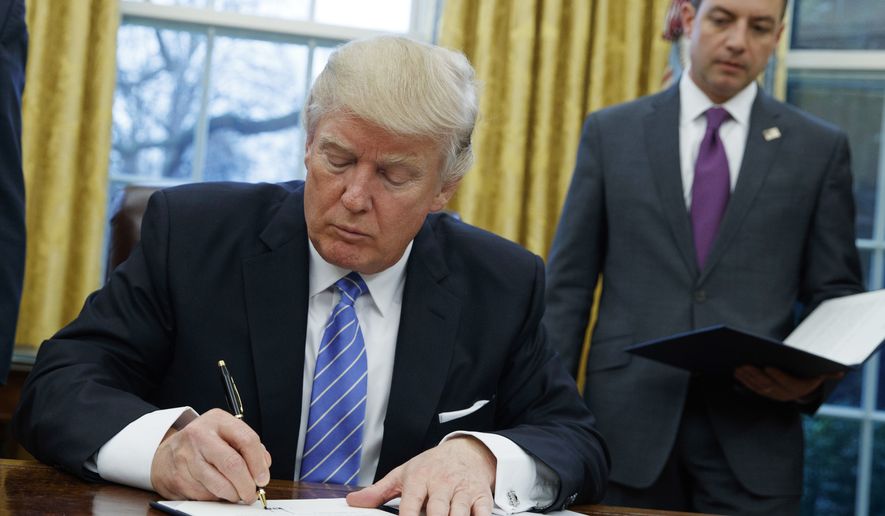OPINION:
There has been much analysis made of President Trump’s July 6 speech in Warsaw. Left-wing commentators have expressed sentiments indicating that the speech was “without substance,” “bland” and “lacking” in a laundry list of policy priorities. Conservative commentators have focused on its emphasis on Western civilization and confirmation of NATO. What seems to be missed is how much the speech returns the American conservative movement and the Republican Party to its foreign policy and philosophical roots.
First, from the post-World War II period onward, reaching maturation under the administration of President Dwight Eisenhower, both the Republican Party and the conservative movement championed the plight of Eastern Europe, often focusing on Poland especially in 1953 and 1956. It was here that the Republican Party’s stance advocating that democracy, human rights and American national interests were intertwined, ever more uncomfortable with the policy of containment and seeking an alternative. This alternative became known as “rollback” and liberation. Though this policy would have difficulty in becoming airborne, it would become the central heart of President Ronald Reagan’s attitude toward the philosophy of communism and the Soviet state. Again, Poland was the epicenter of this thinking. It is, therefore, fitting that a Republican president returns to a place that helped to define the entire party and movement.
Second, both the party and movement have continuously warned against the ideological power of extremism and the need for America to champion the counter-attack. It was the conservative movement’s anti-communism that created the cement for a coalition that would become the modern Republican Party. It is now that same philosophy that makes the unambiguous case against Islamic extremism.
Third, the speech warned about Russian power and expansionism. This may seem obvious in a country like Poland, but it was the conservative movement that recognized quickly that FDR’s attempt at a grand alliance, would fail. It would fail not only because of communist aggression, but also Russian imperialism. The Republican Party was often castigated by the left and many in the Democratic Party for being overly anti-Russian. This liberal attitude of appeasement toward the Soviets was as equally entrenched as the Republican Party’s warning over Soviet and Russian adventurism. It is, therefore, a laughable tragedy that the liberal movement wishes to engage in Soviet-style revisionist history by treating any warnings about Russia as its own. It is perhaps the most cynical and hypocritical attempt in the entire life of the modern liberal movement.
Fourth, Mr. Trump issued a caution against the ravages of a big government and big bureaucracy. One can’t bemoan the totalitarian and authoritarian horrors of dictatorship and then embrace the “road to serfdom” at the same time. The Poles know full well that the small horrors of a bloated bureaucracy and unreasonable regulations may not be as horrific as the gulag, but they stem from the same attitude. It was this warning made most famously by Reagan that also built another pillar of modern American conservatism.
Fifth was the president’s emphasis on God and faith, and how they are intertwined with freedom and vitality. It was faith that saved Eastern Europe from being erased by communism, and it has been the conservative movement and Republican Party that continues to be the champion of traditional religion in the naked public square.
Lastly was the emphasis on Western civilization and Atlanticism. This concept has been written and spoken of consistently. However, it has been the conservative movement and the Republican Party that has never shied away from the pride of knowing the superiority of Western values and civilization, and its translation into practical policies such as NATO. This championship of Western values on the international stage for the Republican Party began with President Theodore Roosevelt and has continued ever since. In an age when one side of the American political coin has embraced multicultural relativism, it is the other that emphasizes that at the core of all the benefits we enjoy, as Russell Kirk illustrated, is the inheritance from Athens, Rome, Jerusalem, London and Philadelphia.
• Lamont Colucci is associate professor of politics at Ripon College and author of “The National Security Doctrines of the American Presidency: How they Shape our Present and Future” (Praeger, 2012).




Please read our comment policy before commenting.